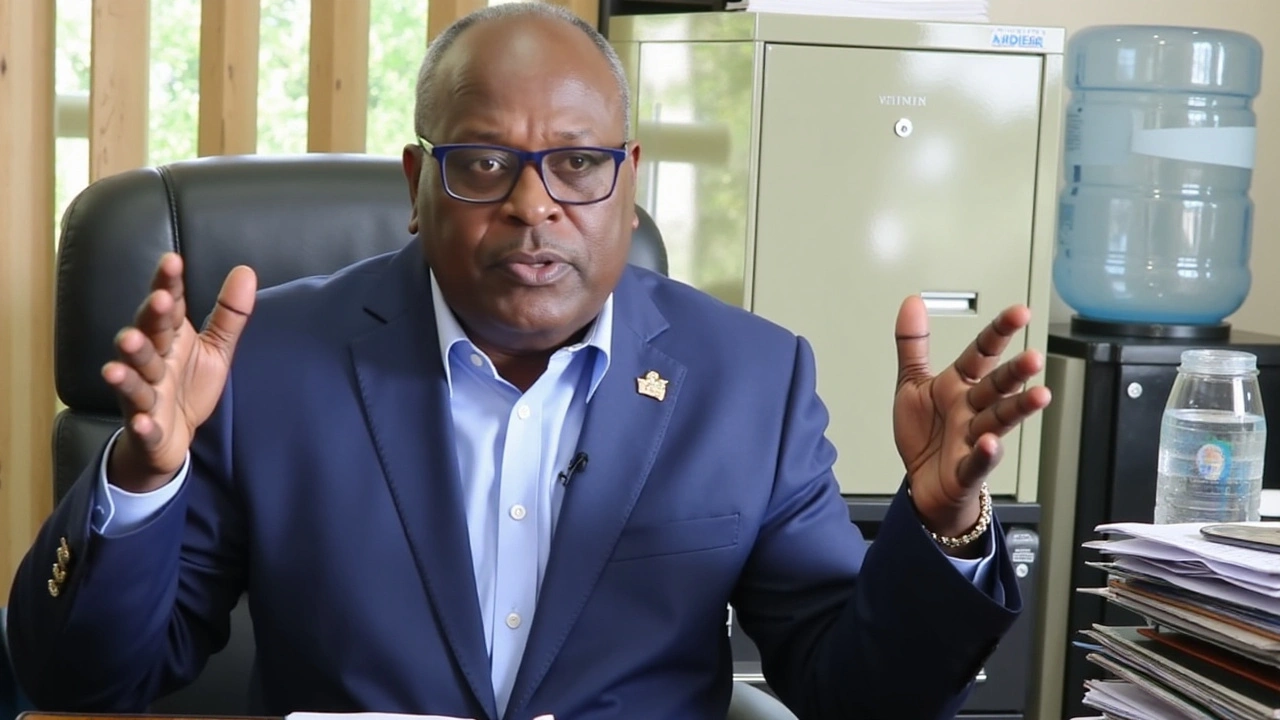Kuppet Ready to Negotiate with TSC Following Weeks of Standoff
The Kenya Union of Post-Primary Education Teachers (Kuppet) has decided to soften its previously rigid position by expressing willingness to enter into negotiations with the Teachers Service Commission (TSC). This shift comes after a striking defiance of a court order to call off industrial action, which had kept classrooms across the country devoid of teachers. On August 29, Kuppet communicated its readiness to discuss the pressing issues with TSC in a meeting intended to resolve their demands without any prejudice. This decision starkly contrasts with their unyielding stance taken just a week earlier when the union leadership urged teachers to continue their strike despite a court ruling against it.
Court's Temporary Injunction Ignored
The backdrop to this evolving scenario involved a court order issued by Justice James Rika on August 29, 2023. The order provided a temporary injunction, effectively restraining Kuppet from any industrial action until a full hearing scheduled for September 5, 2024. Nonetheless, Kuppet's secretary general, Akello Misori, had instructed its members to sustain their strike until their legal counsel could offer clarity on the court's directive. This brazen defiance inflamed the situation, escalating tensions between the union and the governing authorities.
Key Demands Fueling the Strike
The central issues prompting the industrial action focus on several critical points of contention. Kuppet has been insistent on the complete implementation of the second phase of their 2021-25 Collective Bargaining Agreement (CBA). In addition, they demand the promotion of 130,000 teachers and the absorption of 46,000 Junior Secondary School (JSS) teachers on permanent and pensionable terms. Another major sticking point involves the remittance of loan and statutory deductions to respective agencies. These demands reflect a broader call for improved working conditions and recognition of educators' professional contributions.
Contrasting Stances: Kuppet vs. Knut
Interestingly, Kuppet's steadfast approach contrasts sharply with the actions of their sister union, the Kenya National Union of Teachers (Knut). The latter had called off their strike, indicating a readiness to trust the government's assurances. Knut's secretary general, Collins Oyuu, mentioned that TSC had already promoted 51,232 teachers and agreed to implement phase II of their CBA. However, Kuppet members continued to uphold their strike, with regional leaders explicitly stating their deliberate disobedience of the court order. Their stand was based on the firm belief that TSC could readily implement their agreed payment and employment terms under the 2021-25 CBA.
Looming Impact on Education Sector
The ongoing strike has had a significant ripple effect on the national education landscape, disrupting lessons and applicable educational programs countrywide. For instance, even in remote regions like Garissa, teachers joined the job boycott, underscoring the widespread discontent among educators. Parents, students, and other education stakeholders have expressed growing concerns over the resultant academic disruptions and their potential impact on students' performance and progression.
Shifts Towards Resolution?
In light of the recent developments, Kuppet's decision to come to the table for dialogue is seen as a constructive move towards resolving the ongoing strife. Engaging in meaningful negotiations provides an avenue for each party to air their grievances and reach a mutually beneficial agreement. There remain, however, cautious optimism and a sense of skepticism considering the complexities involved in addressing such multifaceted issues within the education sector.
What Lies Ahead?
Much now hangs in the balance as stakeholders anticipate further engagement between Kuppet and TSC. The resolution of these disputes is crucial, not just for the teachers but also for the broader educational ecosystem, which has already borne the brunt of the disruptions. As the nation awaits the September court hearing, the hope is that the union's leadership and government representatives will find common ground, paving the way for reinstating normalcy in schools and ensuring that educators are adequately compensated and supported in their vital roles.



Vinod Pillai
August 30, 2024 AT 20:40And don't give me that '2021 CBA' nonsense. If the government promised it, they'll deliver. But you can't hold the entire education system hostage for political theater. The kids are paying the price, not the union brass in their air-conditioned offices.
Avantika Dandapani
September 1, 2024 AT 19:38When Kuppet says 'implement phase II,' they're not asking for luxury. They're asking to be seen. To be paid what was agreed. To be given dignity.
I’m not saying ignore the court. I’m saying-listen to the people behind the strike. They’re not the enemy. The system is.
Ayushi Dongre
September 3, 2024 AT 02:00One must ask: why does the state possess the authority to suspend collective action via judicial injunction, yet fails to honor contractual obligations without coercion? The CBA is not a gift. It is a social contract. The court’s injunction is procedural; the union’s demand is substantive.
Perhaps the deeper question is not whether they should strike, but why the state continues to treat education as a fiscal liability rather than a civic imperative.
sandeep singh
September 3, 2024 AT 11:09Where’s the patriotism? Where’s the respect for the nation’s future? These teachers are being manipulated by union bosses who care more about power than pedagogy. Time to purge the rot.
Sumit Garg
September 4, 2024 AT 16:21Furthermore, the conflation of 'CBA implementation' with 'promotion' is a semantic sleight of hand. Promotions are administrative acts; CBAs are contractual instruments. To treat them as synonymous is to misunderstand the very architecture of labor law.
One must question: if the union cannot articulate its demands with precision, how can it expect to be taken seriously?
Sneha N
September 6, 2024 AT 00:46Every child who missed a lesson. Every teacher who cried in their classroom after hours. Every parent who stood outside the school gate, helpless.
This isn’t just a strike. It’s a national heartbreak.
And now… they’re talking. Maybe… just maybe… light is coming.
❤️🩹 I’m holding my breath. I’ve been holding it for months.